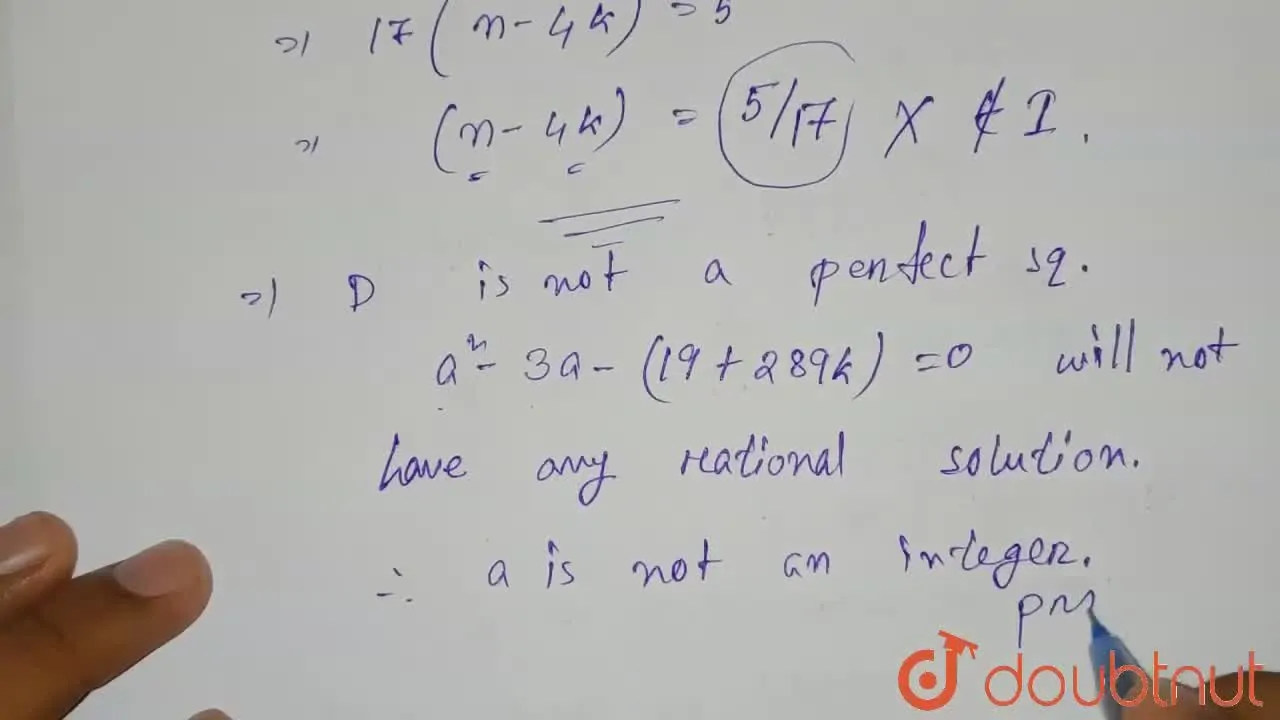Show that there is no integer 'a' such that a2−3a−19 is divisible by 289.
Step by step video & image solution for Show that there is no integer 'a' such that a^2-3a-19 is divisible by 289. by Maths experts to help you in doubts & scoring excellent marks in Class 12 exams.
Related Playlists
- BOOK - RESONANCE ENGLISHCHAPTER - NUMBER THEORYEXERCISE - Exercise -2 (PART - I)22videos
NUMBER THEORY
- BOOK - RESONANCE ENGLISHCHAPTER - MATRICES & DETERMINANTEXERCISE - HLP34videos
MATRICES & DETERMINANT
- BOOK - RESONANCE ENGLISHCHAPTER - RELATION, FUNCTION & ITFEXERCISE - SSP55videos
RELATION, FUNCTION & ITF
Similar Questions
If n is a positive integer, show that: 4n−3n−1 is divisible by 9
View SolutionIf n is an odd positive integer, show that (n2−1) is divisible by 8.
View SolutionIf n is an odd positive integer, show that (n2−1) is divisible by 8.
View SolutionIf n is a positive integer, show that 4n−3n−1 is divisible by 9
View SolutionProve that 33! is divisible by 215. what is the largest integer n such that 33! is divisible by 2n.
View SolutionIf n is positive integer show that 9n+7 is divisible 8
View SolutionProve that 33! Is divisible by 219 and what is the largest integer n such that 33! Is divisible by 2n?
View SolutionShow that :
153−83 is divisible by 7View SolutionIf n is a positive integer, then show that 6n−5n−1 is divisible by 25
View SolutionShow that :
153+83 is divisible by 23.View Solution


